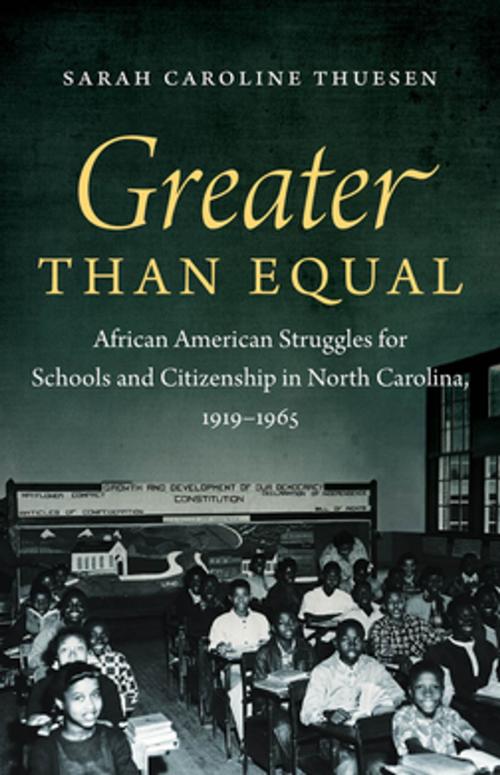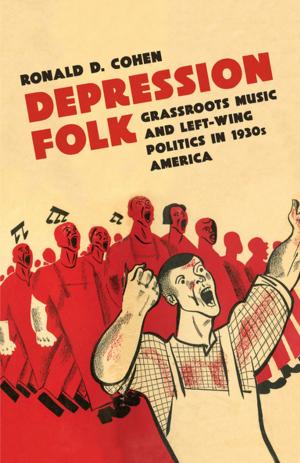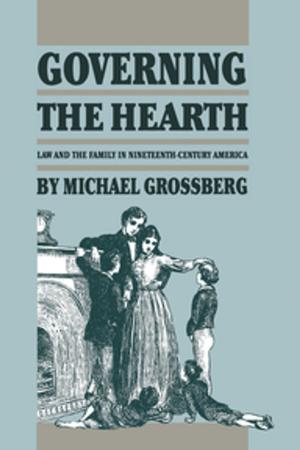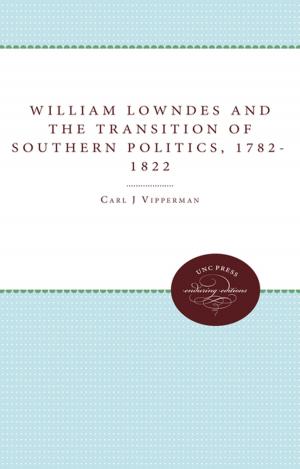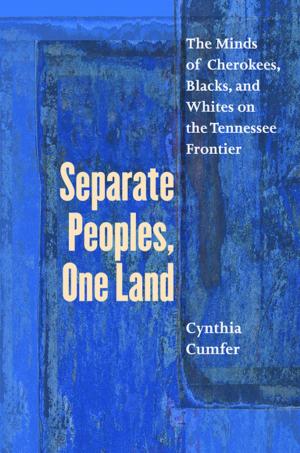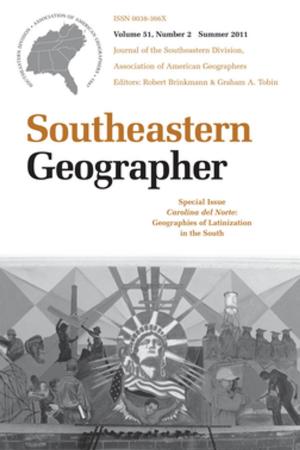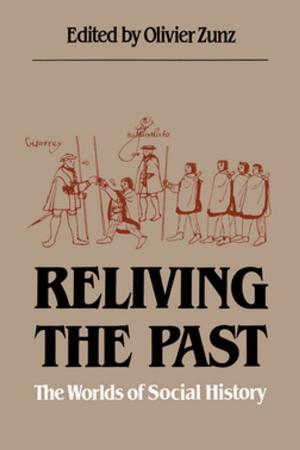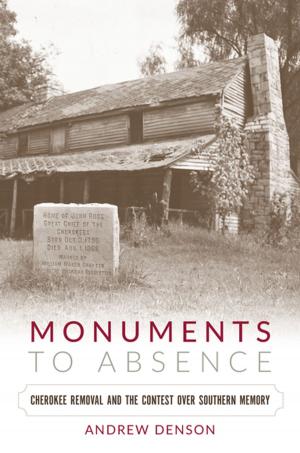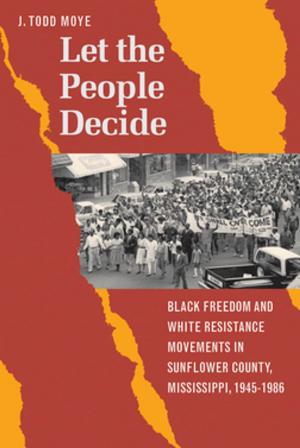Greater than Equal
African American Struggles for Schools and Citizenship in North Carolina, 1919-1965
Nonfiction, Reference & Language, Education & Teaching, Educational Theory, Philosophy & Social Aspects, Social & Cultural Studies, Social Science, Cultural Studies, African-American Studies, History, Americas, United States| Author: | Sarah Caroline Thuesen | ISBN: | 9781469609706 |
| Publisher: | The University of North Carolina Press | Publication: | August 1, 2013 |
| Imprint: | The University of North Carolina Press | Language: | English |
| Author: | Sarah Caroline Thuesen |
| ISBN: | 9781469609706 |
| Publisher: | The University of North Carolina Press |
| Publication: | August 1, 2013 |
| Imprint: | The University of North Carolina Press |
| Language: | English |
During the half century preceding widespread school integration, black North Carolinians engaged in a dramatic struggle for equal educational opportunity as segregated schooling flourished. Drawing on archival records and oral histories, Sarah Thuesen gives voice to students, parents, teachers, school officials, and civic leaders to reconstruct this high-stakes drama. She explores how African Americans pressed for equality in curricula, higher education, teacher salaries, and school facilities; how white officials co-opted equalization as a means of forestalling integration; and, finally, how black activism for equality evolved into a fight for something "greater than equal--integrated schools that served as models of civic inclusion.
These battles persisted into the Brown era, mobilized black communities, narrowed material disparities, fostered black school pride, and profoundly shaped the eventual movement for desegregation. Thuesen emphasizes that the remarkable achievements of this activism should not obscure the inherent limitations of a fight for equality in a segregated society. In fact, these unresolved struggles are emblematic of fault lines that developed across the South, and serve as an urgent reminder of the inextricable connections between educational equality, racial diversity, and the achievement of first-class citizenship.
During the half century preceding widespread school integration, black North Carolinians engaged in a dramatic struggle for equal educational opportunity as segregated schooling flourished. Drawing on archival records and oral histories, Sarah Thuesen gives voice to students, parents, teachers, school officials, and civic leaders to reconstruct this high-stakes drama. She explores how African Americans pressed for equality in curricula, higher education, teacher salaries, and school facilities; how white officials co-opted equalization as a means of forestalling integration; and, finally, how black activism for equality evolved into a fight for something "greater than equal--integrated schools that served as models of civic inclusion.
These battles persisted into the Brown era, mobilized black communities, narrowed material disparities, fostered black school pride, and profoundly shaped the eventual movement for desegregation. Thuesen emphasizes that the remarkable achievements of this activism should not obscure the inherent limitations of a fight for equality in a segregated society. In fact, these unresolved struggles are emblematic of fault lines that developed across the South, and serve as an urgent reminder of the inextricable connections between educational equality, racial diversity, and the achievement of first-class citizenship.
